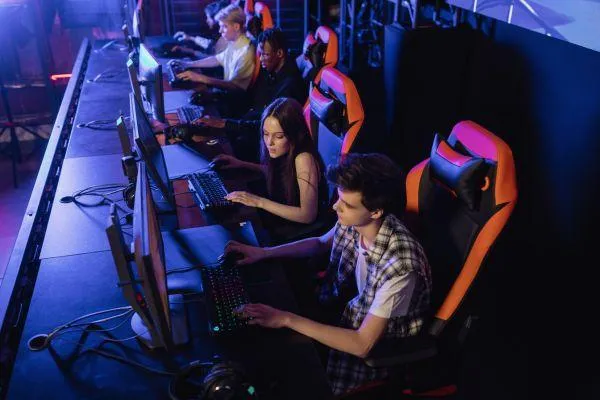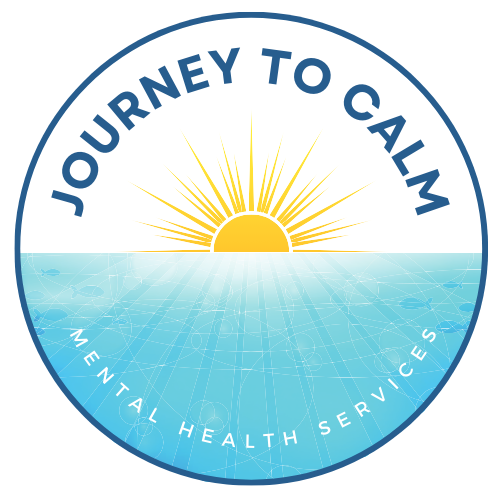Blog
Blog

The Positive Effects of Gaming on Mental Health
For a long time, gaming has been met with concerns about screen time, addiction, and social isolation. However, as research progresses and our views shift, it’s becoming clear that gaming, when done mindfully, can be much more than just a hobby. It can be a powerful tool for supporting mental health. While balance is key, let’s explore how gaming can actually help with stress relief, building social connections, and even improving cognitive resilience.
Gaming as a Stress-Reliever: Finding a Healthier Headspace
One of the most immediate benefits of gaming is how it offers an immersive escape from everyday stress. Games with captivating storylines, stunning visuals, and engaging mechanics can give us that much-needed mental break. This kind of escapism, in moderation, can recharge and reset our minds.
For those dealing with high stress or anxiety, the act of stepping into a different world, even for a little while can be similar to reading a good book or watching a movie. It shifts our focus, reduces tension, and even helps us relax. Games like role-playing or simulation titles often give players a sense of control and purpose, which can be especially grounding during times of uncertainty.
Gaming as a Social Connector: Creating Bonds, Not Barriers
The stereotype of the isolated gamer is outdated. Many modern games are designed to be social experiences, where friendships and communities can grow, sometimes spanning across the globe. Whether it’s multiplayer games, online forums, or cooperative gameplay, there’s a unique space for connecting with others over shared goals and interests.
For people who may find face-to-face interactions challenging due to anxiety or other factors, gaming offers a low-pressure environment to build relationships. It’s a way to communicate, feel a sense of belonging, and develop meaningful connections, all of which are crucial for mental well-being. These virtual friendships can provide real emotional support, helping combat feelings of loneliness.
Cognitive Benefits: Treating Gaming as a Mental Workout
Beyond the emotional and social perks, gaming can also give our brains a workout. Many games challenge us to think strategically, solve puzzles, and make quick decisions - skills that keep our minds sharp. This kind of mental stimulation is great for maintaining focus and problem-solving abilities, which can be particularly helpful in real-life scenarios.
Games that require planning and adaptability help strengthen executive functions like memory, attention, and critical thinking. For those battling anxiety or depression, this can be a way to redirect negative thought patterns and focus on in-game challenges, building mental resilience in the process.

A Mood Booster: The Joy of Achievement
There’s something undeniably satisfying about levelling up, completing a tough challenge, or defeating a difficult opponent. That sense of achievement can boost self-esteem and create a feeling of progress, which is invaluable when other parts of life feel stagnant or overwhelming.
Many games are designed to reward players frequently, which taps into the brain’s reward system and triggers the release of dopamine, a 'feel-good' hormone. When done in moderation, this feedback loop can lead to a brighter mood and a more positive outlook.
The Therapeutic Power of “Serious Games”
In recent years, a new category has emerged: “serious games.” These are designed with therapeutic goals in mind, specifically aimed at helping with mental health challenges like anxiety, PTSD, or ADHD. They often incorporate techniques like breathing exercises, grounding strategies, or prompts for reflection and gratitude - all within an engaging framework.
Research suggests that these games can complement traditional therapy, offering an interactive way to practice self-care. They provide a creative platform for managing mental health, while also making it easier to talk openly about it.
Virtual Reality (VR) Games
VR gaming takes immersion to a whole new level, making it feel like you're truly stepping into another world. While this can be thrilling and an exciting escape, it’s easy to lose track of time and space, which can blur the lines between mindful gaming and unhealthy habits. The highly immersive nature of VR can lead to longer gaming sessions, making it harder to step away or be aware of your physical and mental state. Without mindful boundaries in place, VR gaming can intensify feelings of disconnection or even overstimulation, pulling you away from the real-world balance that’s important for mental well-being. So, while VR offers incredible experiences, it’s crucial to stay grounded and aware of how and when you play. VR gaming is incredibly difficult to do mindfully, so consider this carefully before choosing this option. There are many other gaming options that are better for your health.
Conclusion: Embracing Gaming Mindfully
When approached with mindfulness and balance, gaming can be a meaningful addition to our self-care toolkit. It offers a way to relieve stress, build social connections, and challenge our minds. It’s important to set boundaries and be aware of when gaming might be more about avoidance than well-being, but there’s also value in recognizing the benefits this digital space can offer.
By taking a mindful approach, we can use gaming to create a more connected, resilient, and joyful life. With the right perspective and choices, gaming becomes more than just a pastime - it can be a powerful tool for personal growth and mental health.
This perspective highlights how gaming can be a positive force, encouraging balance and mindfulness while showcasing its potential to support mental well-being. The emphasis on community, cognitive engagement, and therapeutic benefits reveals how the gaming world offers more than just entertainment - it can actually help us take better care of ourselves.

